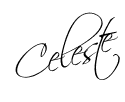I've been working diligently towards building a community where I live. Check out our new
Springfield TJEd website. Here is the blurb for what we are about:
We are a coalition of family mentors working to build a community of people who value freedom. We are not affiliated with any political parties. Our goal is to
promote freedom by offering opportunities to receive a Liberal Arts Education at home, in our schools, churches, and the community at large. Join us in educating ourselves, our families, and those around us.
How can we obtain a Liberal Arts Education?
A Liberal Arts Education is obtained through studying the great minds of history.
A Thomas Jefferson Education: Teaching a Generation of Leaders for the Twenty-First Century
and
The Great Conversation (Great Books of the Western World)
describe how this can be achieved. The Founding Fathers studied these great minds and understood how precarious freedom would be then and in the future. Their knowledge led to the greatest expansion of free thinking and progress the world has ever seen.
Together, we can read and discuss the books the Founding Fathers discussed and the great books that have been written since their time. We can gain the knowledge they had. Through this we can retain, and even gain back, freedoms that are imperative to this great country of ours.
Those who expect to reap the blessings of freedom, must, like men, undergo the fatigue of supporting it. ~ Thomas Paine
Why should I obtain a Liberal Arts Education?
Many people feel that our country is heading in the wrong direction. Our nation is graduating people who cannot read sufficiently. The general feeling of anxiety and worry about our future, and the future of our children, permeates our everyday activities, the media, and our conversations. What better reason to learn about keeping freedom alive?
I don't know where to start.
Start with us! We have many upcoming opportunities to learn and grow together. Periodically we offer
speakers on various education topics. Monthly
classic book discussions are available for those wishing to meet and learn with other like-minded people.
Freedom has its life in the hearts, the actions, the spirit of men and so it must be daily earned and refreshed - else like a flower cut from its life-giving roots, it will wither and die. ~ Dwight D. Eisenhower







